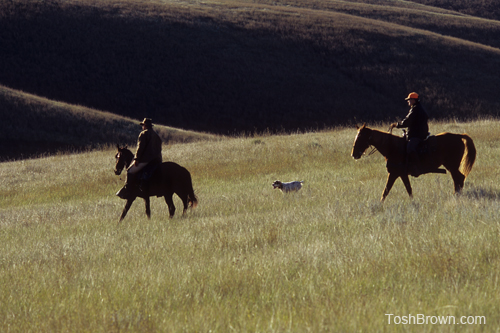Bird dogs are a gift. Each one a potential treasure trove of incredible points and unbelievable retrieves. They’re also something much grander. Their lifespan provides us with a window into our own lives. A snapshot over 10 to 15 years of our careers, our families, our evolution as bird hunters and as individuals. When a new puppy comes into the family, it’s a time for reflection and joy, as a new period in life has begun.
My first bird dog, a pudelpointer named Sawyer, came into my life when I was fresh out of grad school. She was with me when money was so tight I lived in a garage and steelhead were my top priority. She joined me on spawning surveys on coastal creeks, learned to swim by falling off the front of a jet sled en route to a summer steelhead spot, and we learned the ropes together as aspiring waterfowler and occasional preserve pheasant hunters. She’s seen me through six different houses, a marriage, and the birth of our son.
Our second bird dog, an English setter my wife named Sadie, arrived amidst a global pandemic and more upheaval than any of us could have expected. Headed home from her breeder in Idaho to Oregon’s Willamette Valley, I made an impromptu decision to divide the trip in half and take a detour to see my mom and stepfather in Spokane.
Mom instantly fell in love with our new puppy. Those memories today are dreamlike and uncertain two years removed from that unplanned visit. A few weeks after I returned home with our new puppy, mom lost consciousness following a hair appointment. The next two months were filled with trips to emergency rooms and doctor’s offices, countless tests, and complete uncertainty over what was causing her low blood pressure, chronic fatigue, and intermittent fevers. It wasn’t until after she passed that we’d learn of a rare and undiagnosable cancer with a name too hard to pronounce.
Two months after she passed, an annual chukar camp with a few kindred souls seemed like just the salve for my grief. Two others in our group had also recently lost parents, so in a way, it seemed like the most organic of support groups for guys who don’t do support groups. With high hopes, I loaded Sadie into my truck and headed for a week amongst sagebrush and rimrock with dreams of her first point on a wild Nevada chukar pulling me south.
On the last day of my time at chukar camp, with the new puppy showing little interest in birds, I headed out with an Ithaca Model 37 in 16ga I’d acquired a few days after mom’s passing. The gun turned out to be made in the same year mom was born, so it seemed destined that I’d shoot the pup’s first pointed chukar that day.
After a full day’s hunting and only glimmers of interest in birds from the new setter, I picked my way down a rimrock ledge back towards the truck. I resolved that the dog was too young and that perhaps later in the season, she’d put the pieces together and we’d get her first point.
With the truck in sight, skies parted in the most dramatic fashion on the western horizon. As the sun shone through the clouds, the setter made a hard right and lifted her nose into the wind. My fingers tingled as her back flattened and her tail rose skyward.

As I walked in to make the flush, my heart sank as I realized the only bird on the business end of Sadie’s point had fallen victim to a hawk the day or two prior. A pile of feathers lay strewn about. As the puppy broke point and sniffed around the remnants of a covey worth of bird shit, I took a seat on some rimrock and was overwhelmed by the beauty and grandeur of my surroundings and the moment in time I found myself in.
When my son was born, one of my mom’s first gifts was a book by Patrick McDonnell about a dog that doesn’t know what to give his friend the cat for her birthday. After much searching and stress, the perfect gift turns out to be a big empty box with a bow on it- “The Gift of Nothing.” The moral of the story is in valuing time spent with those you love doing absolutely nothing beyond enjoying the moment and the company and the mutual love and respect you have for each other.
My new puppy’s debut at our annual chukar pilgrimage hadn’t gone as I’d hoped. But sitting on that rimrock with the soft muzzle of a five-month-old puppy in my lap, skies doing their best impression of a Nevada Visitor’s Guide cover photo, and six days in the bag with good friends, good food, campfires and whiskey, I couldn’t help but give thanks to my mom for reminding me what this short, precious window of time is all about.





















